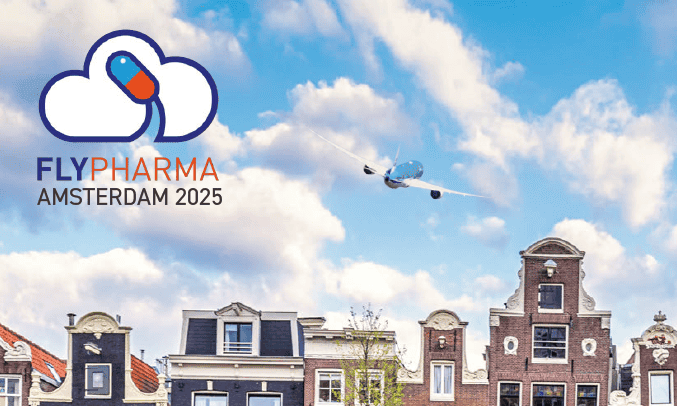- FlyPharma Europe 2025 gathered over 160 logistics and life sciences experts to tackle challenges in pharmaceutical transport, focusing on compliance, sustainability, digitalisation, and collaboration amid growing operational complexity
- Sustainability and digitalisation dominated discussions, with emphasis on balancing environmental ambitions with real-world logistics demands and overcoming fragmented data systems to unlock transparency and efficiency
- The event underscored that people remain the true drivers of progress in pharma logistics, with innovation, coordination, and shared purpose essential to advancing patient-centred, resilient supply chains
FlyPharma Europe 2025 brought together over 160 logistics and life sciences professionals to confront the evolving realities of pharmaceutical transport. What emerged was a reflection on the sector’s growing pains, its untapped potential, and the urgency to rethink how compliance, sustainability, cooperation and innovation intersect.
The host city reaffirmed its strategic role in global pharma flows, with infrastructure developments aimed at strengthening its position, even by mentioning Maastricht Airport (MST) as its “second runway”. Yet, beneath the optimism, participants acknowledged persistent challenges: fragmented audit processes, inconsistent handling standards, and a lack of unified data systems.
Sustainability dominated the agenda. Discussions ranged from packaging and reverse logistics to the feasibility of zero-emission targets and the role of SAF. While ambitions are high, many agreed that environmental goals must be balanced with operational realities, especially in temperature-sensitive supply chains. Circularity, waste reduction and a reduced carbon footprint emerged as key priorities.
Digitalization was positioned as both a solution and a challenge. While unified platforms and data control promise greater transparency, insights, and operational efficiency, the industry still struggles with fragmented systems, trust in AI, and the lack of shared data. The potential is clear, but adoption requires alignment, cooperation, and cultural change across the supply chain.
The first day of the conference concluded with a powerful reminder: innovation in pharma logistics must ultimately serve human needs. A workshop centered on a real-life medical emergency brought this into sharp focus, as participants explored decision-making models in a scenario where timing and coordination were critical. The presence and active involvement of the individual affected by the case transformed the discussion from theoretical to deeply personal, reinforcing the purpose behind every system, process, and improvement. It was a moment that brought clarity and purpose—reminding everyone why this work matters, and grounding innovation in the real lives it aims to protect.
Workshops and panel discussions revealed that people—not just processes or technology—remain the most critical and challenging element in the pharma supply chain. While some argued that mindset matters more than individuals, others stressed the need to engage teams through storytelling and shared purpose. The rise of cell and gene therapies added urgency to the conversation, highlighting the need for specialized handling, community standards, and cross-functional coordination.
FlyPharma Europe 2025 made one thing clear: the future of pharma logistics will be shaped not by technology alone, but by people and their willingness to act, adapt, and collaborate.





